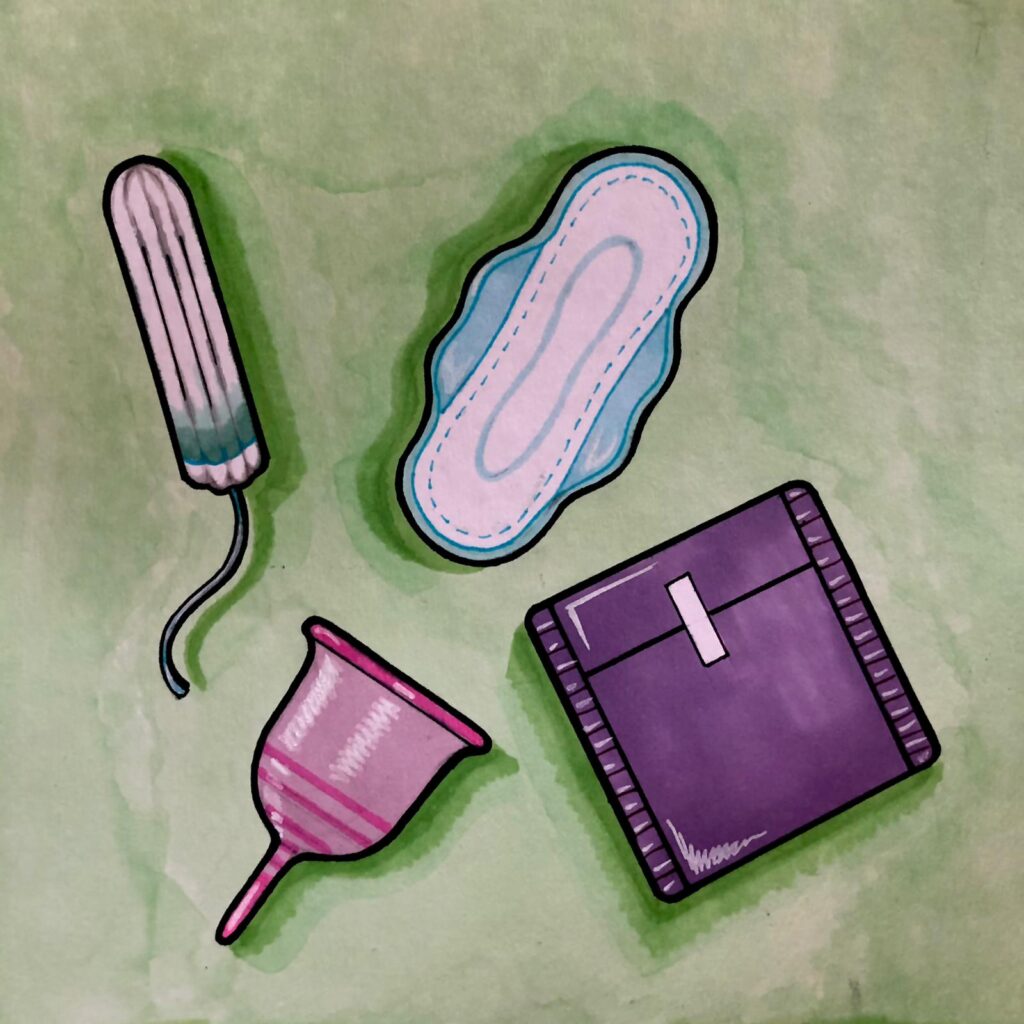
Meet the people making periods progressive
Menstruators unite: it’s time to get on board with a new, enlightened attitude towards periods. We all know by now that gender and sexuality operate on spectrums, rather than in structured binaries; and this language needs to translate to the innermost workings of our bodies. That’s right: It’s time that periods got progressive.
Bloody Good Period is an organisation that provides free period products and education to refugees and asylum seekers in England and Wales. Terri Harris, 28, is the Sexual and Reproductive Health Education Manager for the organisation. She spends most of her time in sessions with gynaecologists, talking about vulvas, periods, and period products. “It’s really awesome to be able to do that, and also just to learn so much every day myself,” she said.
As the organisation’s education representative, Harris runs sessions that bring medical professionals into refugee and asylum-seeking communities, teaching about sexual and reproductive health from a period-positive standpoint. We spoke to her about what the period positivity movement means for gender inclusivity.
She said “I think fundamentally, gender-inclusive period education is about taking gender out of that situation; talking about periods and menstruation in terms of biology. Education should be centred around the uterus, the vulva, and the vagina, but none of that needs to be linked to gender.”
The provision of education also includes finding safe spaces for all menstruators, not just cisgender women, to use and dispose of period products. “Bloody Good Period advocates for bins for period products in all toilets,” said Harris. “A lot of the young trans or non-binary people I’ve worked with say that there is embarrassment around opening period products in male toilets, in case people hear and you’re discovered or outed. That would be a really uncomfortable, horrible experience of something which should be so basic and normal.”
Harris believes in a three-pronged approach to building a more gender-neutral future for periods, starting with access to period products for all. According to Harris, this in turn “involves a cultural and attitudinal shift away from this idea that only women have periods.”
Bloody Good Period also advocates for more healthcare directed to the effects of a menstrual cycle on those who are transitioning; something often not acknowledged by medical practitioners, according to Harris. As education manager, Harris believes strongly in improving the teaching around menstrual health. “We still divide sexual reproductive health sessions between male and female students,” she said.
“Not only can this be really triggering for trans and non-binary young people, but also you then have a whole group of human beings who don’t understand how a fundamental biological function takes place.”
Not all people who have periods are women, and not all women have periods
Hannah Samano, 28, CEO and founder of Unfabled, the first marketplace for menstrual cycle care, agrees that universally inclusive period education is key for improving overall awareness.
“We’ve been so let down by the patriarchy,” she said, “when it comes to the lack of education in the menstrual cycle and how our hormones affect how we feel throughout the month.”
For Samano, the damaging message around periods spreads further than education, infiltrating the design and marketing of period products. Take the marketing of mainstream tampon and pad brands like Always, for example, which she says presents periods as a simple, monthly obstacle to ignore. “This kind of messaging which says: ‘Hey, don’t even think about your period, go and play volleyball,’ is just completely beside the point. If we lived in a matriarchy, we would know that your period is the time to wind down.”
Unfabled gathers together products and brands under the ruling value of self-care; specifically, maintaining mental health through self-care practices during a period. According to Samano, more than 90 per cent of people who have periods have symptoms, and they can range from mild to severe; yet symptom care is completely not catered to in mainstream healthcare.
“The health of anyone from a marginalised gender, be they a woman, non-binary or trans, is not the priority of focus of a patriarchal society,” Samano said. Her hope is that growing communities on social media will push for progress towards a more inclusive attitude towards periods. “I think that Instagram has a really powerful role in the wellness space, in allowing these more left-field conversations to spring up,” she said.
Communities like these show us the damaging effects of rendering periods as “ladylike, elegant and dainty” – one of the most dangerous roadblocks to a more inclusive future for period care. As the industry catches up, so will its language. In particular, and according to both Samano and Harris: “Not all people who have periods are women, and not all women have periods.”
